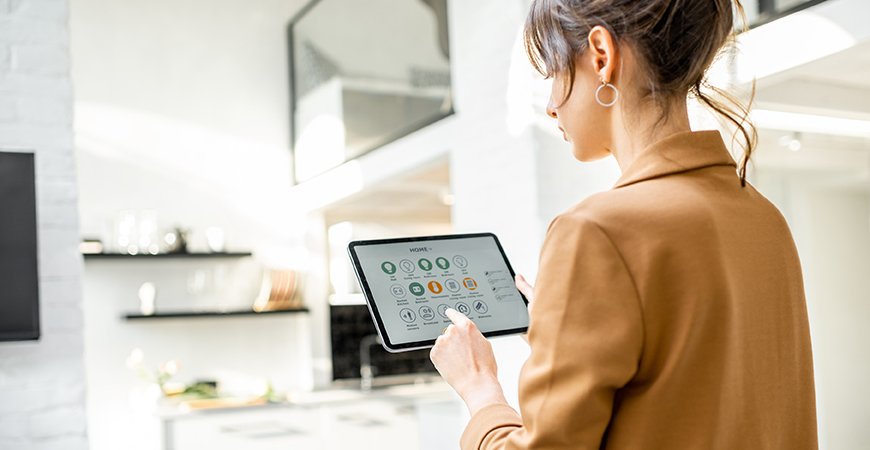Waypoints: Can Smart Technology Add Value to Your Home?
posted
on Friday, August 20, 2021
in
Realtor News

Achieving full home automation doesn’t come cheap. A few smart speakers and a smart thermostat won’t set you back much, but for a fully connected home with all the bells and whistles, you could be looking at upwards of $15,000 for a typical three-bedroom, two-bathroom home.1 When thinking about resale value, is smart tech a smart investment?
Buyers Are Willing to Pay a Premium for Smart Homes
As more people become accustomed to connected living, there’s a growing appetite for homes equipped with smart technology. According to the 2020 Z-Wave Alliance Ecosystem Report, 65% of U.S. homebuyers are willing to spend more for a smart home.2 A consumer survey by Realtor.com® found that buyers would pay a higher home price for the following features:3
- Solar roof tiles and battery packs
- Smart security system
- Smart doorbell
- Smart entertainment/home theater
- Touchless faucets
- Connected kitchen
Not only could smart technology help your home sell for more money, it may also help it sell faster. In a 2017 survey of over 3,000 real estate professionals, 91% of respondents said that highlighting smart technology in the listing helps with marketing a home, and 82% felt that smart technology streamlines a home sale.4 Case in point: A 2020 Zillow report revealed that homes featuring smart sprinkler systems and smart lighting sold 15.1 and 7.3 days faster than expected.5
How Much Can You Recoup?
The question remains: Just how much more are people willing to pay for these features? The answer: It depends. The temperature of the local market, the quantity and quality of smart devices you have installed, and whether those devices are considered real property or personal property will influence your sale price. That last factor is key.
An item that is considered “real property” is a permanent fixture that’s affixed to the house, but that definition can become murky when discussing smart home components, especially when buyers want to purchase a home with such devices pre-installed. For example, 77% of buyers want smart thermostats pre-installed, and 66% want a smart camera pre-installed.6
Your best bet is to talk to a real estate agent about whether the smart technology in your home could help you sell for more. If there are items you intend to leave behind and want included in the sale, you can negotiate those into the sale price. Just be sure they’re listed in the contract as fixtures that will remain in the home.
Remember to reset your smart devices to factory settings before moving out to ensure none of your personal information, passwords, or account details are visible to the new owners.
While there’s no way to assign a number to a smart home’s potential return on investment, we do know that the demand for home automation is only getting stronger, and buyers may be willing to loosen the purse strings in exchange for cutting-edge tech. Besides, enjoying the benefits of your smart home while you live there could be worth every penny. If it improves your quality of life and gives you pride in your home, why bother putting a price tag on it?
Sources:
[1] GearBrain, “How much does it cost to turn the average house into a smart home?”
[2] 2020 Z-Wave Alliance Ecosystem Report.
[3] Realtor.com®, “Smart Home Technologies Reshape Real Estate Preferences in 2020.”
[4] T3 Sixty and Coldwell Banker Real Estate, Smart Homes: An Emerging Real Estate Opportunity.
[5] Zillow Research, “Home Features That Sell,” March 2020.
[6] 2018 Coldwell Banker Real Estate Smart Home Marketplace Survey.